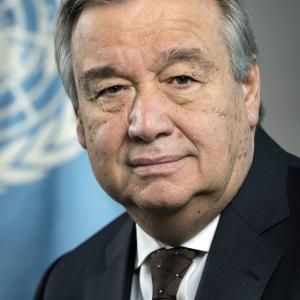Sexual violence in conflict is a threat to our collective security and a stain on our common humanity.
Its effects can echo across generations, through trauma, stigma, poverty, poor health and unwanted pregnancy. Children conceived through wartime rape often struggle with issues of identity and belonging for decades after the guns have fallen silent.
They may be left in legal limbo, or at risk of becoming stateless. They are vulnerable to recruitment, trafficking and exploitation, with broad implications for peace and security, as well as human rights.
Their mothers may be marginalized and shunned by their own families and communities. These women and children are sometimes seen as affiliates of armed and violent extremist groups, rather than as victims and survivors.
On the International Day for the Elimination of Sexual Violence in Conflict, we amplify the voices of these forgotten victims of war, who suffer stigma, shame and exclusion in societies polarized by armed conflict.
The United Nations stands ready to work with governments, civil society, traditional and religious leaders, and all partners to support children born of rape in wartime and their mothers, and those working on the frontlines to support them.
Let us reaffirm our global commitment to eliminate the scourge of conflict-related sexual violence and to provide justice, services and support to all those affected.






